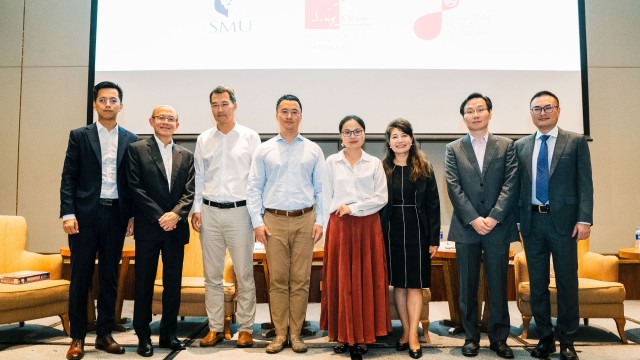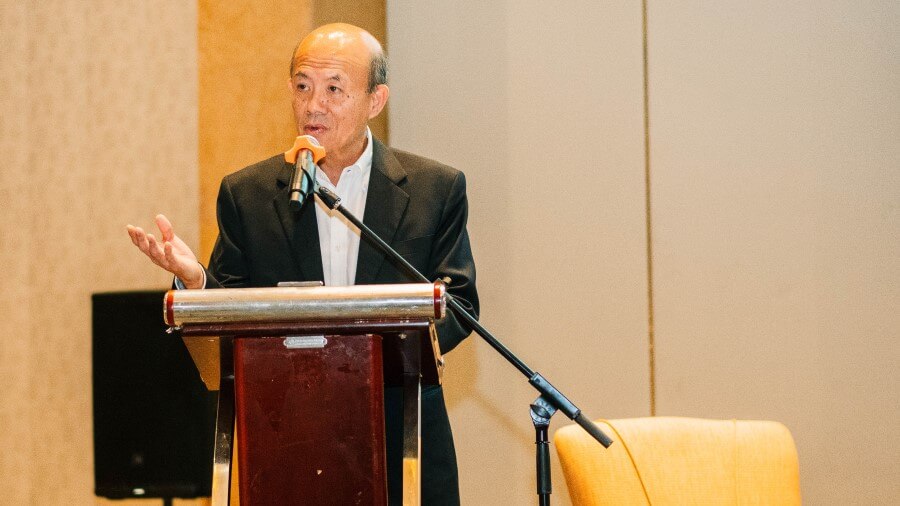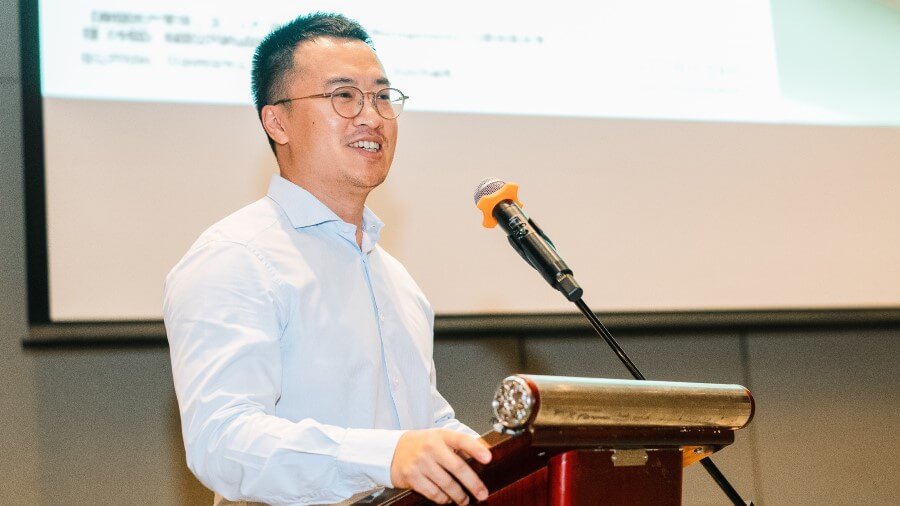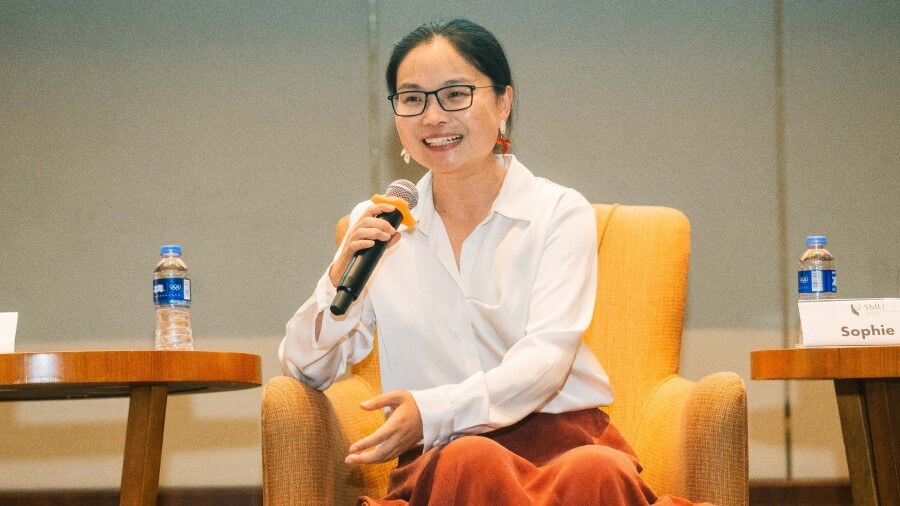
Charting a Greener Future: Highlights from the SMU Asia Leadership Series on Sustainability in Business
The recent “SMU Asia Leadership Series – Sustainability in Business: Successful Green Finance, Green Tech, and Green Talent Initiatives” event in Shanghai saw business leaders come together to discuss the latest trends on sustainability, as well as their organisations’ environmental, social and governance (ESG) efforts in China. The panellists also discussed the skills needed to propel sustainability initiatives within businesses, including keeping up with the latest technological advancements.
The World Meteorological Organisation (WMO) recently reported that Antarctic sea-ice levels in June 2023 were at their lowest since satellite observations began. This unexpected decline in ice, particularly in the typically ice-rich Antarctic region, adds to a series of alarming climate-related incidents, underlining the critical necessity for immediate and decisive climate action.
With its strong commitment to sustainability, SMU has prominently featured Sustainable Living as one of its key strategic priorities within its Vision 2025. This dedicated focus has led SMU to not only establish an environmentally conscious campus, but also to spearhead meaningful research, nurture resilient communities, and empower transformational change through its students, faculty, and staff.
A crucial component of these endeavours involves taking the lead in fostering discussions on sustainability. This commitment was underscored during the recent “SMU Asia Leadership Series – Sustainability in Business: Successful Green Finance, Green Tech, and Green Talent Initiatives” event.
Held in China at the Sheraton Grand Shanghai on 22 July 2023, the forum saw prominent business leaders come together to discuss the latest trends on sustainability, as well as their organisations’ environmental, social and governance (ESG) efforts in China.
SMU’s continuous commitment to sustainability
In a world beset with ecological challenges, the clarion call for sustainability has become more pressing than ever. As an academic institution, SMU is dedicating itself to nurturing a new generation of change makers – by imparting a profound appreciation for ecological balance and responsible resource management.
“SMU is trying to become a carbon-neutral campus by the year 2030. We are also continuously incorporating ESG and sustainability knowledge and skills into all the programmes that we run, and we have introduced new tracks and degrees in the area of sustainability,” said Mr Henry Yeo, the Head of SMU Postgraduate Career Services, in his welcome address, referencing programmes such as the Sustainability Management Major that are offered at SMU.

On top of bringing together sustainability leaders to discuss common challenges, this Leadership Series also provided SMU graduates the opportunity to engage with industry partners and alumni, allowing them to delve into the sustainability approaches taken by diverse businesses.
In concluding his address, Mr Yeo expressed his hopes that the event would provide a conducive environment for discussions on sustainability in business. “I’m confident that as we learn and engage in constructive dialogues, we will pave the way for a better and more inclusive future for the next generation.”
The evolution of ESG investments in the APAC region
After the welcome address, Mr Dachuan Zhang, head of the ESG Business Line of JP Morgan Asset Management (China), or JPMAM, shared the market trends for ESG allocation in the Asia-Pacific (APAC) region in his keynote address.
Highlighting how the governmental efforts in Singapore and Hong Kong have been growing stricter on ESG as a corporate label in the past few years, Mr Zhang shared his own experience with China’s push for ESG efforts.

“Even though we haven’t seen any specific policies about ESG labelling in China, when we actually apply for a new product, the China Securities Regulatory Commission officer does ask a lot of questions about the authenticity of the ESG labelling, so we are expecting new policies to kick in anytime.”
A heartening observation by JPMAM at the close of 2022 revealed that only 19 per cent of investors across the APAC region disregard ESG considerations when formulating investment decisions. Notably, in markets such as China, Australia and Hong Kong, more than half of the investors have already embraced ESG strategies as a fundamental aspect of their investment approach.
Understanding the challenges and opportunities in ESG
Following Mr Zhang’s keynote address, a panel of speakers took to the stage to discuss the challenges and opportunities that were presented by ESG.
On the panel was Mr George Wang, Senior Vice President of Energy, Renewables and Infrastructure at DBS Bank (China); Ms Sophie Xu, Associate Director of Corporate Solutions at Morningstar Sustainalytics; Mr Steven Guo, Vice President of Eco-Partnership and ESG at OpenPie, and Dr Johnny Mei, Managing Director and Founding Partner at D3 Consultancy. The panel was moderated by Mr Noah Bai, Director of Global Business Development at Orient Futures.

Addressing the climate crisis and acknowledging its impact on global temperatures and wildlife, Mr Wang underscored that effective sustainability endeavours demand significant investment. “DBS as a bank sees this challenge as a business opportunity,” he shares, touching on the bank’s net-zero emission target by 2050. “We have a detailed roadmap on how to help our clients to achieve that shift towards decarbonisation in this energy transition.”
Elaborating on Mr Wang’s comment, Ms Xu added: “With people putting in more effort to improve the environment, we have seen cases where companies with bad ESG ratings have experienced a drawback in investments.”
Furthermore, the panel also touched on the requisite skillsets for propelling sustainability initiatives within businesses. A prevailing theme in this discussion revolved around the imperative of maintaining up-to-date skillsets and staying abreast of the latest technological advancements.
“Soft skills are very important as businesses change. Skills like emotional intelligence are needed in any industry, but there is a need to understand and use new technologies like artificial intelligence (AI) and the internet of things (IoT) and understand how you can apply them to your business,” says Dr Mei.
Concluding the panel discussion, the event culminated in a brief yet impactful networking session, fostering a valuable platform for organisations to engage with SMU’s postgraduate students and alumni. This interaction not only facilitated meaningful connections but also paved the way for an expanded array of promising career prospects for the university’s talented student body.




